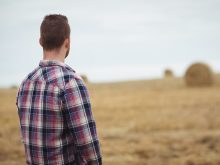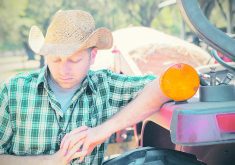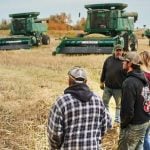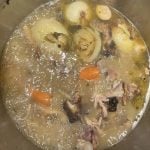Data gathered as part of the Farmer and Rancher Mental Health initiative helped launch the SaskAgMatters Network
Producers are stepping up to help each other with mental health matters.
This stems from the Farmer and Rancher Mental Health (FARMh) initiative research project that identified programs, resources and interventions that Saskatchewan agricultural producers wanted as appropriate mental health supports.
Since its launch in 2021, researchers have collected data from more than 100 farmers and ranchers on useful mental health supports, including their experiences and suggestions on accessing this kind of help.
The information helped launch the SaskAgMatters Network, (www.saskagmatters.ca/), which is connecting producers with mental wellness supports.
Read Also
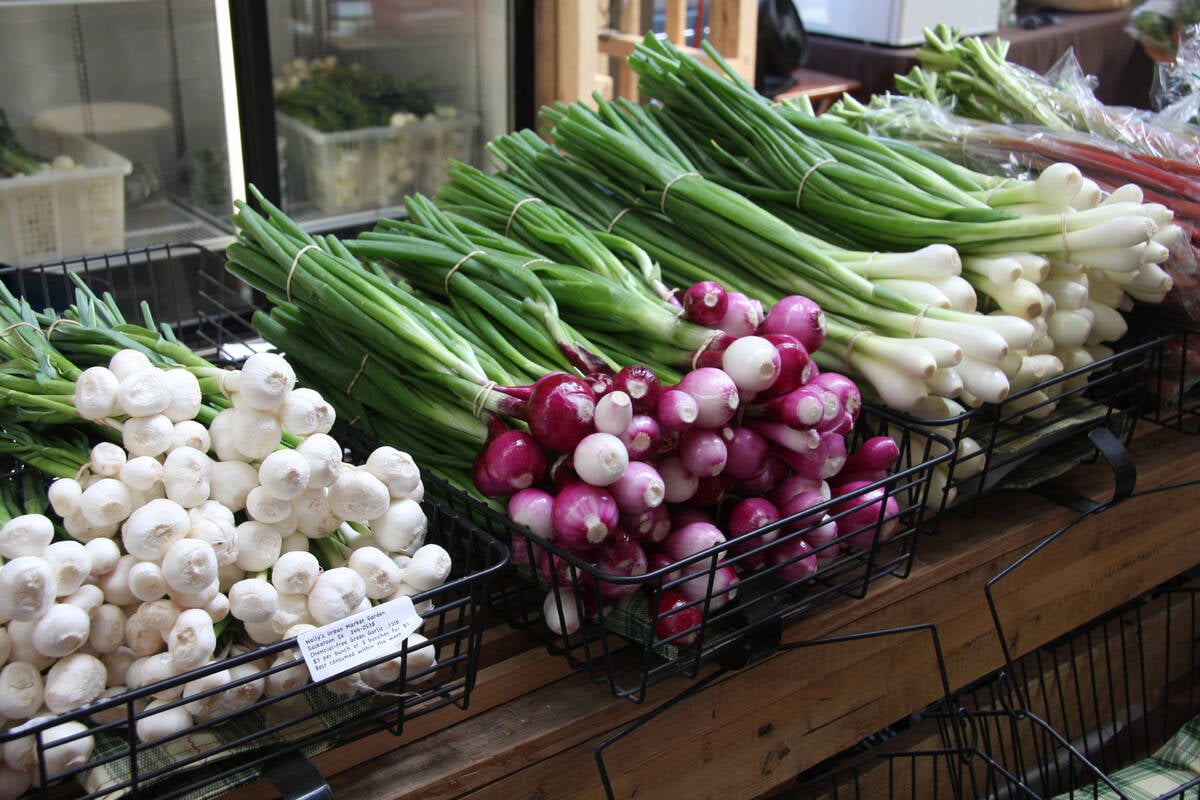
Starting a small business comes with legal considerations
This article sets out some of the legal considerations to start a business to sell home-grown product, such as vegetables, herbs, fruit or honey.
“Our research team wants to explore ways we can support Saskatchewan ag producers. For us, this is researching mental health supports that will meet producers where they’re at, and support them in their work,” said Dr. Michelle Pavloff, Sask. Polytech research chair for rural health and principal investigator of the SaskAgMatters Network.
Through interviews and a provincial survey, Saskatchewan producers shared their requests for mental health professionals trained in farm culture, a peer support network with other agricultural producers, and mental health training for rural health-care providers.
Eighty percent of producers surveyed said they would find it beneficial if other agricultural producers were trained to provide mental health support.
“That was the most requested support system that producers want.
“We were told that it’s easier to train another farmer in mental health than it is to train a health-care provider in farming. So they want that relationship, that shared experience with other producers and that’s how they want to be supported,” she said.
A registered nurse by training, Pavloff married a rancher in 2003 and has learned to appreciate the complexities and nuances of agricultural life.
“There’s so many people in the industry that love it so much that they’re willing to keep going — even if they’re not getting paid, if they’re not feeling appreciated, if there’s a lot of stressors and if they’re having mental wellness challenges,” she said.
Pavloff said the support from the sector has been phenomenal, particularly since creating patient family partners, a term they use to describe anyone with a lived ag experience on their team.
“Everything has been driven by those patient family partners, so their lived experience in the industry has really informed the way that we’ve done things.
“Although I’ve lived out here for 20 years, I don’t have it in my soul the way that our patient family partners on the team do. I don’t understand sometimes what’s needed as well as they do and so they’ve just been very instrumental in getting this thing off the ground,” she said.
Cyle Stewart, a cow-calf rancher at Morse, Sask., had experiences that motivated Pavloff to invite him to become an adviser and patient family partner on the research team.
A series of debilitating concussions caused from bull riding, the death of a young daughter and the daily challenges of ranching affected his mental health and he sought counselling.
“There’s some really educated people in that initiative and most of them do come from an agriculture background,” Stewart said.
“When they have ideas or things that they want to accomplish, they’re looking for a perspective that’s kind of boots on the ground feedback on what they’re trying to accomplish.
“Something that’s concerned me in agriculture is how many people out there did a sport like that when they were younger and now they’re back on the farm or ranch having head injury issues but self-medicating, not knowing where to go for help.”
Stewart is not a counsellor but sees his role as an intermediary for fellow producers looking for someone to speak with who possesses knowledge about agriculture.
“I don’t want anyone to feel like as a producer they have nowhere to go, nowhere to turn to, no resources, and so I just want to be able to help in that way; getting something out there,” he said.
Stewart said many producers suffer in silence about past traumatic events or the daily stresses and responsibilities of running an operation. It can be overwhelming.
Some of the stressors of running a farm or ranch include financial concerns, weather, workload, government, family, isolation and public opinion.
“I think it’s a snowball effect. One thing happens and more things happen, and you keep beating yourself up and you got no one around you,” he said.
“Some people are lucky enough to work with their family every day. Even still, you’re seeing the same people that you have a working and family relationship with, and balancing those two can be tricky.
“Several of my friends who are producers have indicated to having issues with mental health.”
Having a knowledgeable, agriculture-informed counsellor made all the difference.
“For myself, it just kind of brings it back to centre….. I think it’s a good reminder of basics. How to look at situations and look at life and appreciate the things that are going right because sometimes you just get bogged down in everything that’s going wrong,” he said.
The SaskAgMatters Network offers confidential mental health support services for producers and their families in the province at no cost. Each individual can use up to six free one-hour sessions with trained mental health professionals that have a background in farming.
Since starting the program, support from farmers, ranchers, and a variety of different industry groups has been growing, with over $30,000 in private donations so far, said Pavloff.
Will Banford, 22, and his parents at Red Rock Land and Cattle at Eastend, Sask., recently donated $27,000 from the sale of one of their bred heifers toward Farmh’s one-hour counselling sessions.
“What struck me the most about the Farmh initiative was the need to actually figure out what the agricultural community needs and then go from there,” he said.
“It struck me as one of the places that was actually going to make some change rather than just kind of blanket approach something.”
Whether personal, family or in the community, it’s necessary to break the stigma with mental health so that people can visit about it, he said.
“The ag community has some of the greatest people I know, but there’s also a huge block there with mental health kind of things,” he said.
“My family and I feel that if we can help one person, then it’s worth every penny we donated.”






